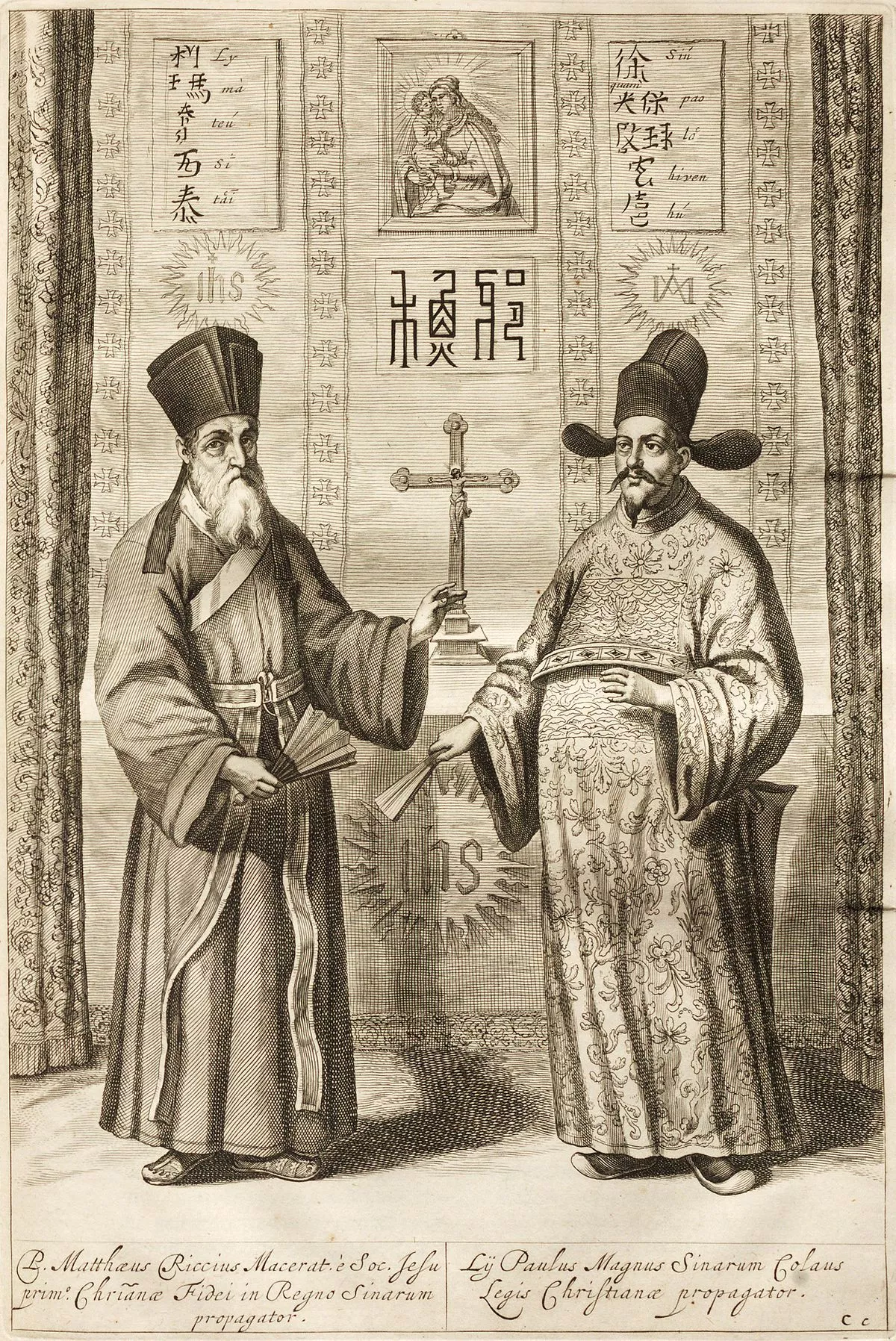 1.
1. Xu Guangqi or Hsu Kuang-ch'i, known by his baptismal name Paul or Paul Siu, was a Chinese agronomist, astronomer, mathematician, politician, and writer during the late Ming dynasty.

 1.
1. Xu Guangqi or Hsu Kuang-ch'i, known by his baptismal name Paul or Paul Siu, was a Chinese agronomist, astronomer, mathematician, politician, and writer during the late Ming dynasty.
Xu Guangqi was the author of the Nong Zheng Quan Shu, a treatise on agriculture.
Xu Guangqi is one of the "Three Pillars of Chinese Catholicism".
Xu Guangqi is the pinyin romanization of the Mandarin Chinese pronunciation of Xu's Chinese name.
Xu Guangqi's family, including an older and younger sister, lived in the Taiqing Quarter at the south end of the town.
Guangqi's branch of the Xu clan were not related to those who had passed the imperial examinations and joined Shanghai's local gentry.
Xu Guangqi seems to have stayed there for the imperial exam the next year, but failed to pass.
Xu Guangqi's descendants remained Catholics or Protestants into the 21st century.
Xu Guangqi experimented with the cultivation of sweet potatoes, cotton, and the nu zhen tree.
Xu Guangqi was called once more to serve the Chinese bureaucracy, where he rose to a high rank and became known late in his career simply as "The Minister".
Xu Guangqi held the positions of Minister of Rites, overseeing government programs related to culture, education, and foreign affairs, and Deputy Senior Grand Secretary, effectively a deputy premier for the imperial cabinet.
Xu Guangqi's tomb remains the centerpiece of Shanghai's Guangqi Park on Nandan Road, just south of Xujiahui Cathedral.
Xu Guangqi wrote a book on military techniques and strategies entitled Mr Xu's Amateur Observations in response to the criticisms he faced for daring discuss military matters in spite of being a mere scholar.
Xu Guangqi frequently cited the Xunzi and Guanzi, and made use of rewards and punishments along the lines of the Legalists, at least in relief activities.
Xu Guangqi put forward the concept of a "Rich Country and Strong Army", which would be adopted by Japan for its modernization in the end of the 19th century, under the name Fukoku Kyohei.
Xu Guangqi wrote the Complete Treatise on Agriculture, an outstanding agricultural treatise that followed in the tradition of those such as Wang Zhen and Jia Sixia.
Xu Guangqi's son was Basil Xu, who served as an official under the Qing.